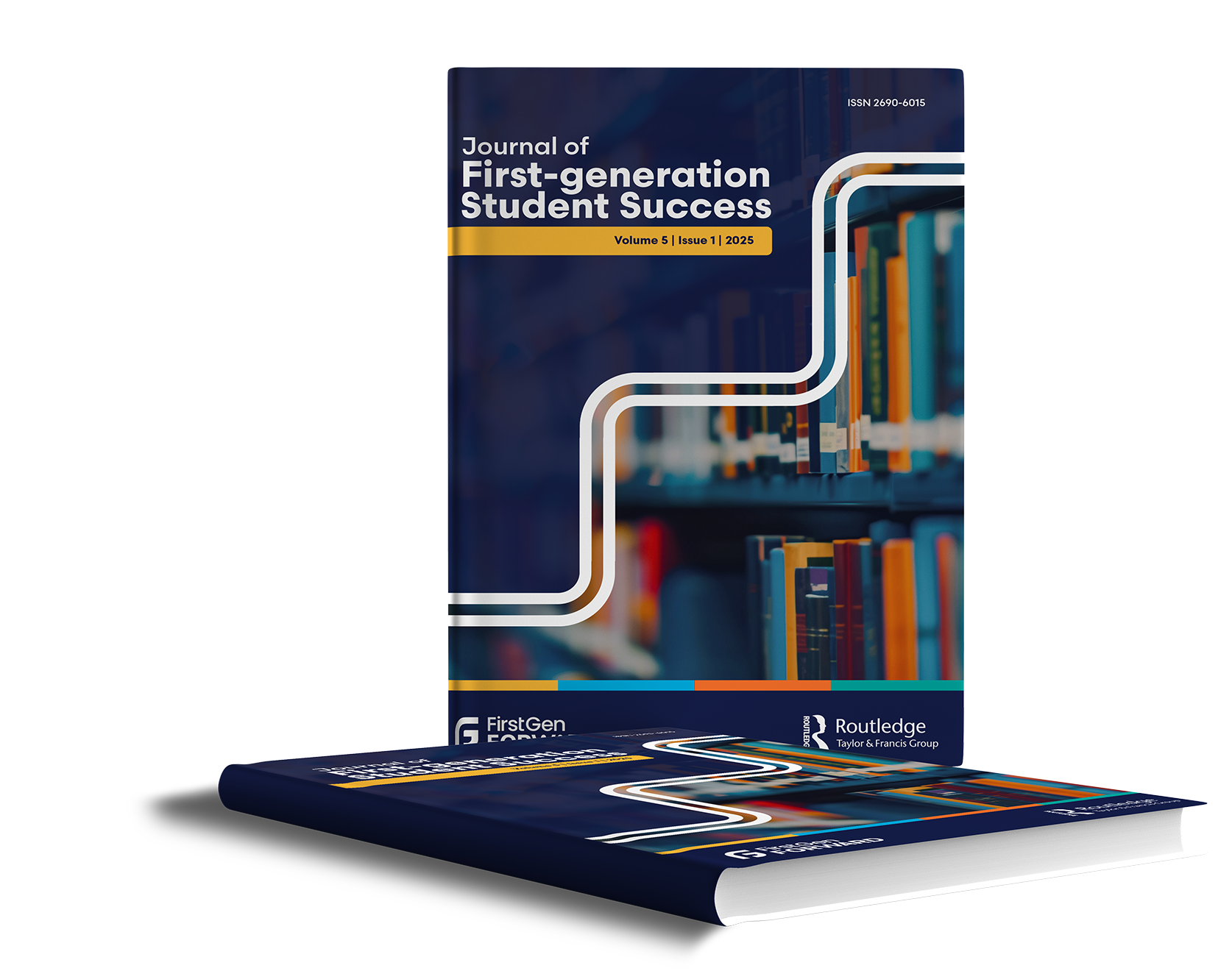Journal of First-generation Student Success
Research Articles
The Journal of First-generation Student Success accepts the following types of research articles:
Empirical Research Articles are "reports of original research" (APA, 2010, p. 10). The standard form for empirical research articles is introduction, methods, results, and discussion, but authors may adapt that form to fit the parameters of their research methods. Empirical research manuscripts submitted to the Journal of First-generation Student Success can include both qualitative and quantitative, ethnography, grounded theory, mixed methods, narrative inquiry, and critical inquiry. They must stress the link between research and practice. Several ways authors can achieve this is by addressing the underlying issues or problems related to practice centering on first-generation students that inspired the research; revealing the methodology (i.e., name and describe the specific methodology used), and discussing its relevance to the first-generation student success field; and/or offer a full discussion of results, implications, and conclusions that relates to practice in higher education through a first-generation student lens. Empirical articles include case studies, methodological, and theory-driven research.
Theoretical Manuscripts are papers in which the "authors draw on existing research literature to advance theory" (APA, 2010, p. 10) about first-generation student success. Similar in structure and form to review manuscripts (see below), theoretical manuscripts differ in that they rarely present data or findings.
Theoretical manuscripts may be reviews and critiques of existing theories or research findings; extensions of existing literature; theoretical critiques of practice; or innovative and forward-thinking expositions of current or future state(s) of student affairs and higher education as applicable to first-generation students.
Review Manuscripts "are critical evaluations of material that has already been published" (APA, 2001, p. 9). These manuscripts can be meta-analyses of qualitative or quantitative research, policy analysis, or compilations of existing theories or models in first-generation student success practice. Review manuscripts often include a) the issue being considered, b) a summary of previous research and literature, c) the identification of relationships, "contradictions, gaps, and inconsistencies" (p. 7), and d) implications for practice, policy, and next steps. Review manuscripts speak to practice with a first-generation student focus.
Technical Requirements:
File Format
Manuscripts must be submitted in .doc or .docx format.
Length
No more than 8,000 words, inclusive of cover page, tables, figure captions, references, appendices, and all materials.
The length of manuscripts is limited to 8,000 words because the editors are committed to increasing the accessibility of the journal to a wide range of authors.
Format
American Psychological Association (APA) Style, 7th Edition.
Spacing and Fonts
Double-spaced, including references, block quotes, tables, and figures, consistently applied throughout the manuscript; standard 12-point font throughout.
Abstract
100 words or less.
Qualitative Manuscripts
Positionality statement which locates authors within systems of equity and inclusion.
Figures
All figures, tables, and charts must be submitted as a PDF document, EPS, or uncompressed Tiff (600 dpi) file in black and white or gray tones.
Language
English or with translations to English included; asset-based framing and writing free of prejudiced, biased, or disrespectful language.
Voice
Active voice with research findings reported in the past tense.
Professional Preparation
Manuscripts exceeding the length limits or requiring additional proofreading, formatting, and/or reference checks will be returned to the author(s) for further editing. Any identification of authorship must be removed before submitting the manuscript. To assure closed review, all identifiers must be removed: names on the cover page, identification embedded in the electronic document properties, references to institutional affiliations, and citations that identify some or all of the authors. In addition, references to specific institutions must be removed before review.
Submission Process
All manuscripts must be submitted through https://mc.manuscriptcentral.com/naspa_jfgss.
Exceptions to any of the above instructions should be discussed with the Co-Editors before submission. Questions about the submission and review process can be directed to the Editorial Assistant at jfgss@firstgenforward.org.
Submit your Manuscript

Submissions to the Journal of First-generation Student Success are accepted on a rolling basis. All manuscripts are subject to a closed, peer-review process (this language reflects a shift to employ inclusive language rather and move away from the industry term “blind review”). Once submitted, the first author will receive confirmation that the submission has been received. Authors are able to track the progress of their submissions in the ScholarOne system.